When it comes to expressing anger, New Zealanders have a unique set of slang terms that capture everything from mild irritation to full-blown rage.
Whether you’re a bit “miffed” or “seething,” there’s always a Kiwi phrase to match the level of frustration.
Some of these terms, like “grumpy as” and “hangry,” are commonly used by all ages, while others, like “ropeable” and “rarked up,” add a bit of extra flair to the expression.
Whatever the reason, Kiwis have no shortage of ways to show when they’re not quite happy, and these terms are part of the everyday conversation.
Let’s find out more.
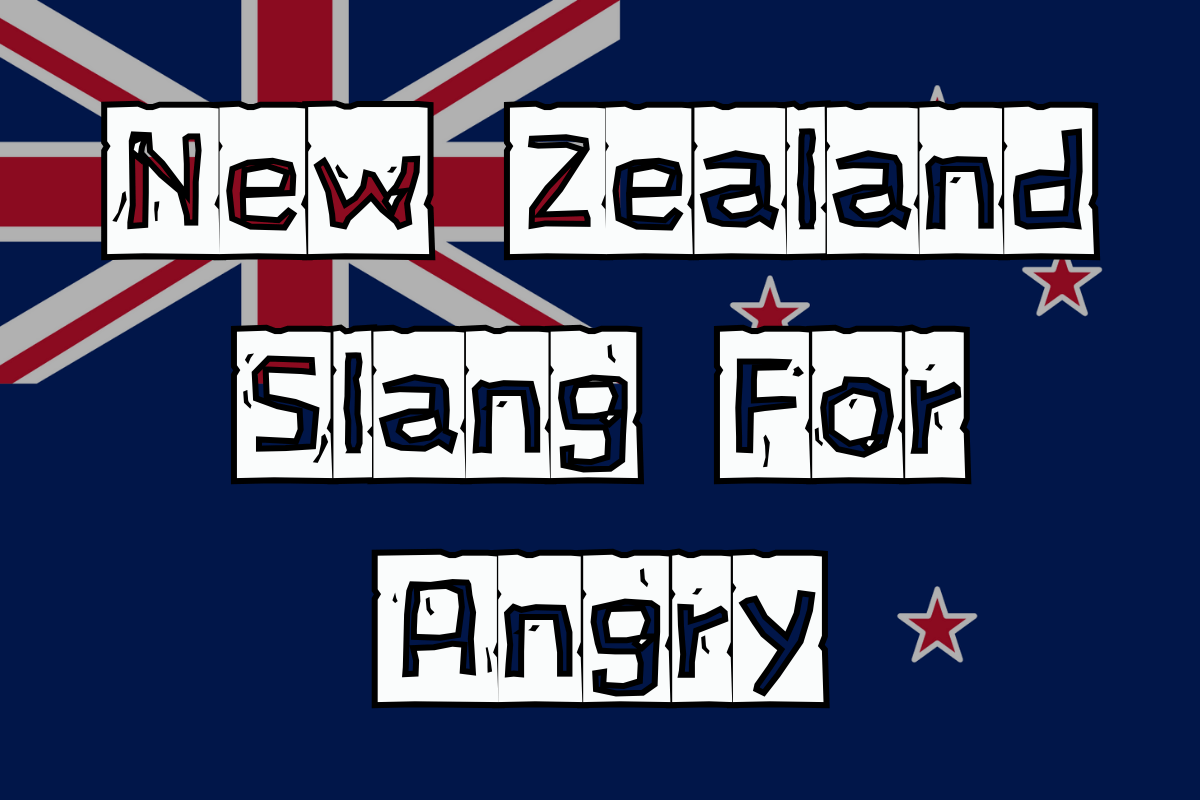
New Zealand Slang For Angry
Dark
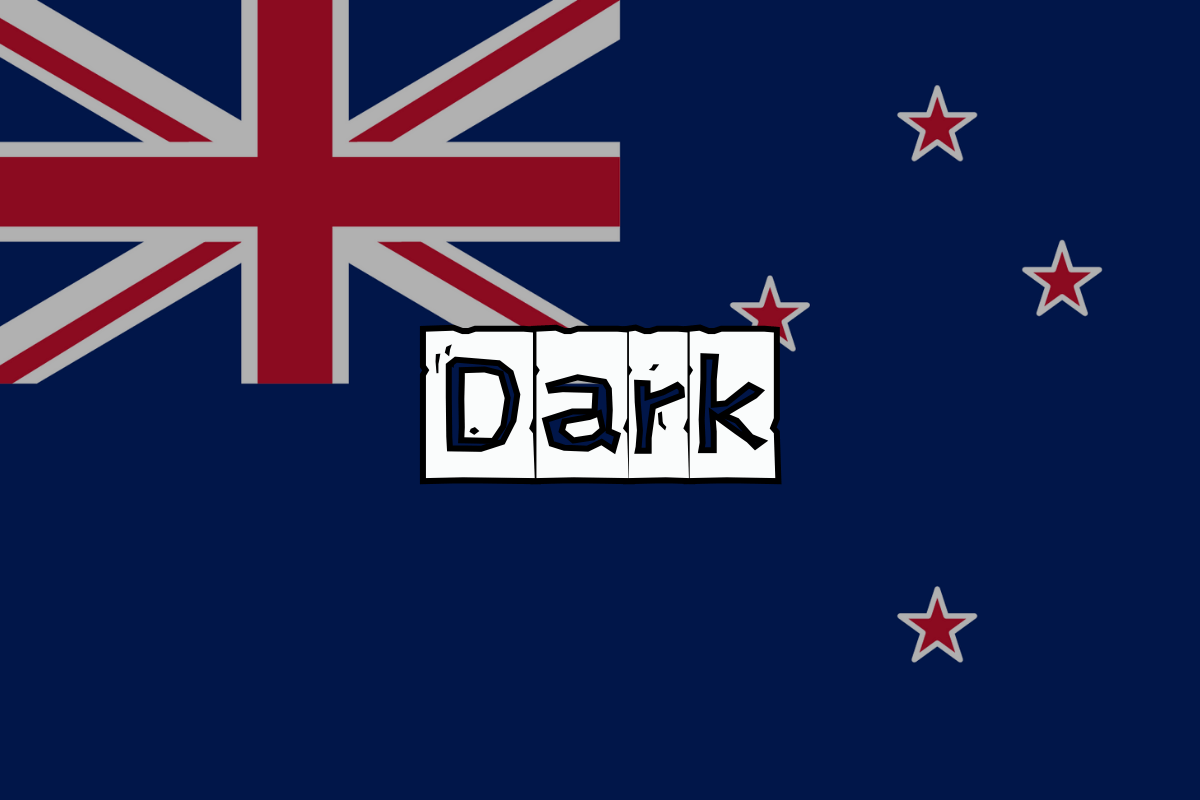
“Dark” is a term often used in New Zealand to refer to someone who is really angry or upset.
It can also describe a mood where a person is visibly annoyed or brooding, often with a hint of intensity.
This term doesn’t necessarily imply that the person is throwing a tantrum, but rather that they’re simmering with frustration or displeasure.
The word is informal and widely understood, especially when someone is acting “dark” without fully expressing their anger.
It’s a versatile way of describing someone who’s in a foul mood, whether or not they’re showing it outwardly.
Examples in sentences:
- “He was really dark after the game last night.”
- “She’s been dark ever since she got that bad news.”
- “I could tell he was dark by the way he was quiet all afternoon.”
- “Don’t talk to him right now, he’s still dark about what happened.”
- “She looked dark when she found out her flight was delayed.”
Grumpy As
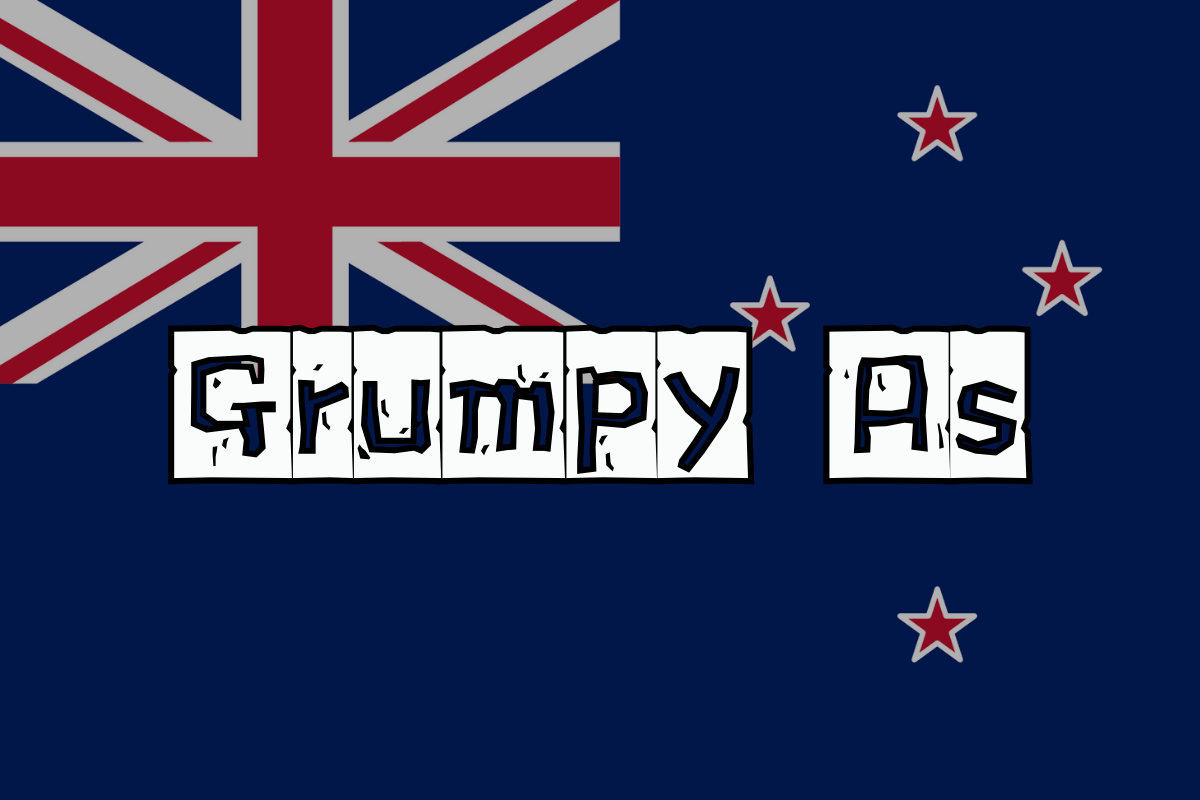
“Grumpy as” is a phrase commonly used in New Zealand to describe someone who is irritable or in a bad mood.
The “as” is added to emphasize the extent of the grumpiness, making it more intense.
It’s a laid-back, informal way of expressing that someone isn’t happy and is showing it in their attitude or behavior.
This term is widely used in everyday conversations and is perfect for describing someone who’s short-tempered or upset, but not necessarily in an aggressive way.
It’s often used in a more light-hearted context among friends and family, reflecting the casual nature of New Zealand slang.
Examples in sentences:
- “He was grumpy as after having to work late.”
- “She’s been grumpy as all morning because of the rain.”
- “Don’t bother him, he’s grumpy as today.”
- “I felt grumpy as after hearing the bad news.”
- “Why is everyone so grumpy as today? Did something happen?”
Hangry
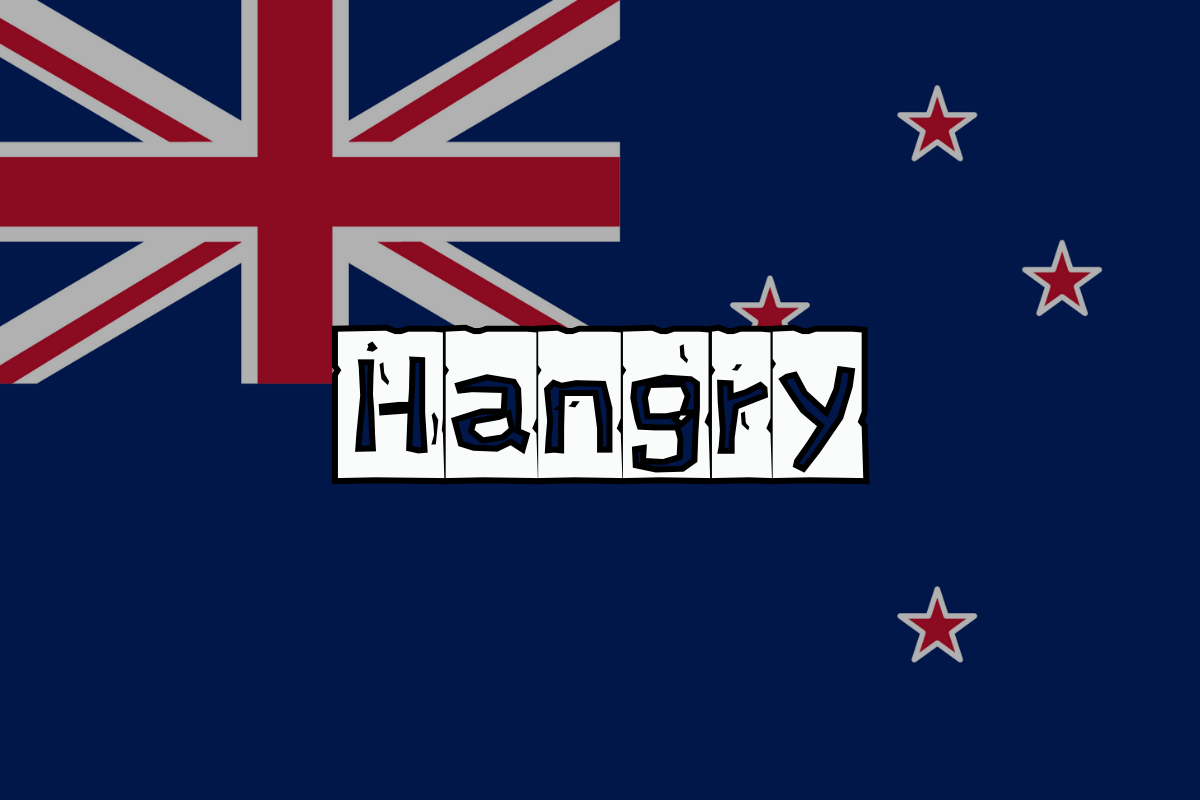
“Hangry” is a combination of the words “hungry” and “angry,” and it’s used to describe that irritable feeling you get when you’re extremely hungry and your patience starts to wear thin.
While it’s commonly used in both New Zealand and other parts of the world, it perfectly captures that frustration that arises when your stomach is growling, and you just can’t wait to eat.
This playful term is a great way to explain why someone might be acting out or snappy – it’s not just because they’re angry, but because they’re in need of food.
It’s often used jokingly among friends and family to lighten the mood when someone’s getting a bit too grumpy over food issues.
Examples in sentences:
- “I’m getting hangry, can we stop for food?”
- “She was so hangry by the time we got to the restaurant, I thought she was going to bite someone!”
- “Stop being hangry, I’ll get you a sandwich in a minute.”
- “I’m hangry – let’s grab some lunch before I lose it.”
- “Don’t talk to him until he eats, he’s hangry right now.”
Miffed
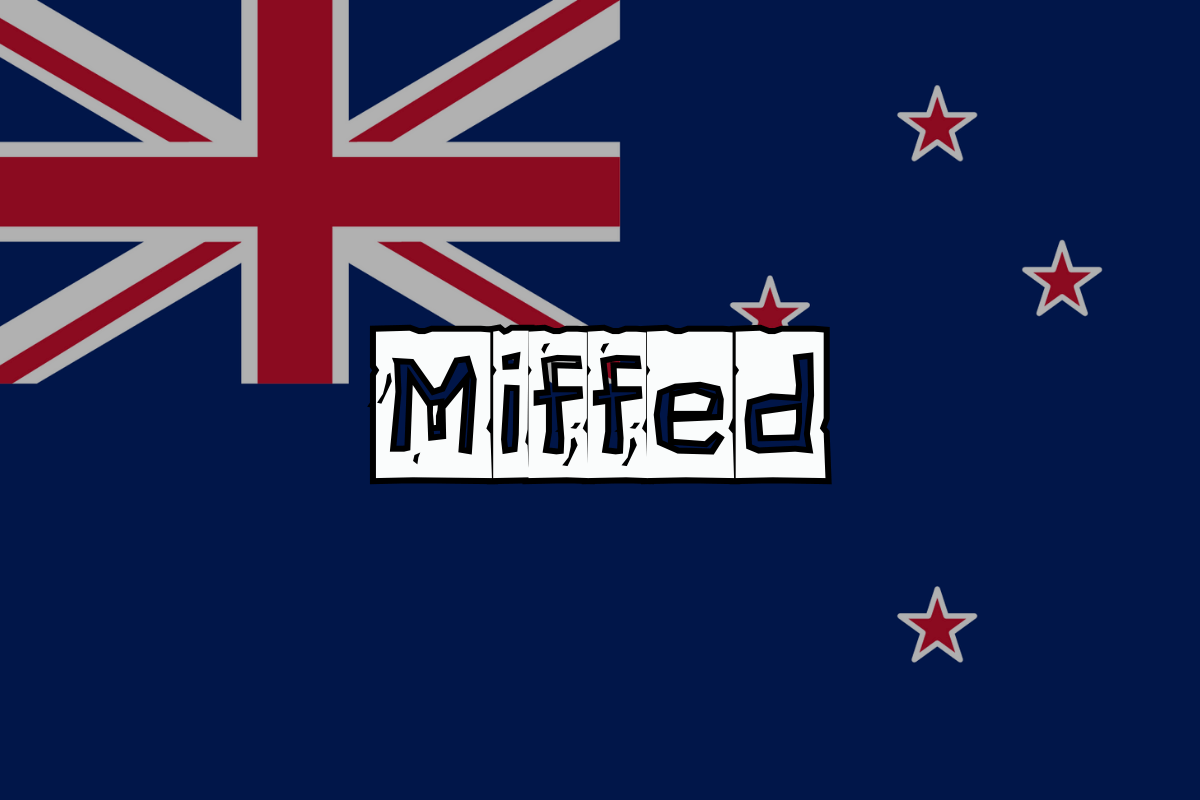
“Miffed” is a lighthearted, yet expressive term used in New Zealand to describe someone who is a little upset or irritated.
It’s not as intense as being furious, but more of a “bit put out” or slightly bothered feeling.
You can use this term when someone is irritated but not completely outraged, making it a great way to express minor frustration in a more casual, non-serious manner.
This word is often used in a humorous or self-deprecating way, and it captures that moment of mild annoyance when things don’t go your way, but you’re not willing to make a huge fuss over it.
Examples in sentences:
- “I’m a bit miffed that they changed the plans without telling me.”
- “He was miffed when they canceled the game last minute.”
- “Don’t get all miffed, it’s not a big deal.”
- “She looked miffed after her favorite team lost.”
- “I’m miffed about how things turned out, but I’ll get over it.”
Rarked Up
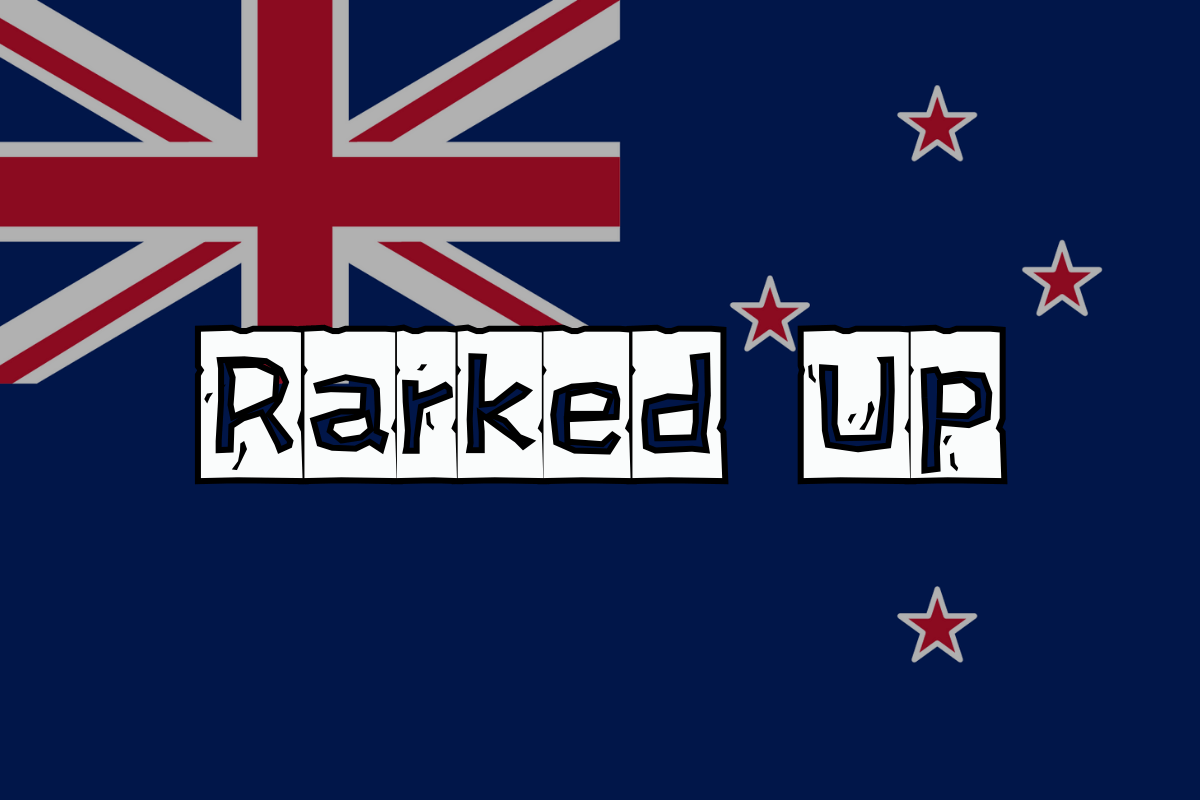
“Rarked up” is a phrase used in New Zealand when someone is fired up with anger, often in a way that’s disproportionate to the situation.
It’s like being a little too worked up over something that might not really warrant such a strong reaction.
While it’s often used to describe an intense burst of frustration, it carries a bit of a humorous or exaggerated tone in New Zealand culture, as if the anger is a bit over the top.
This term is especially useful when you want to describe someone who’s more than just irritated but isn’t quite raging.
It’s that middle ground of being a little too upset about something relatively minor.
Examples in sentences:
- “He got all rarked up over the fact that the movie started late.”
- “She was really rarked up about the bad service at the café.”
- “I can’t believe he’s still rarked up about losing that game.”
- “Don’t get rarked up over something so small!”
- “I’m a bit rarked up, but I’ll cool down soon.”
Ropeable
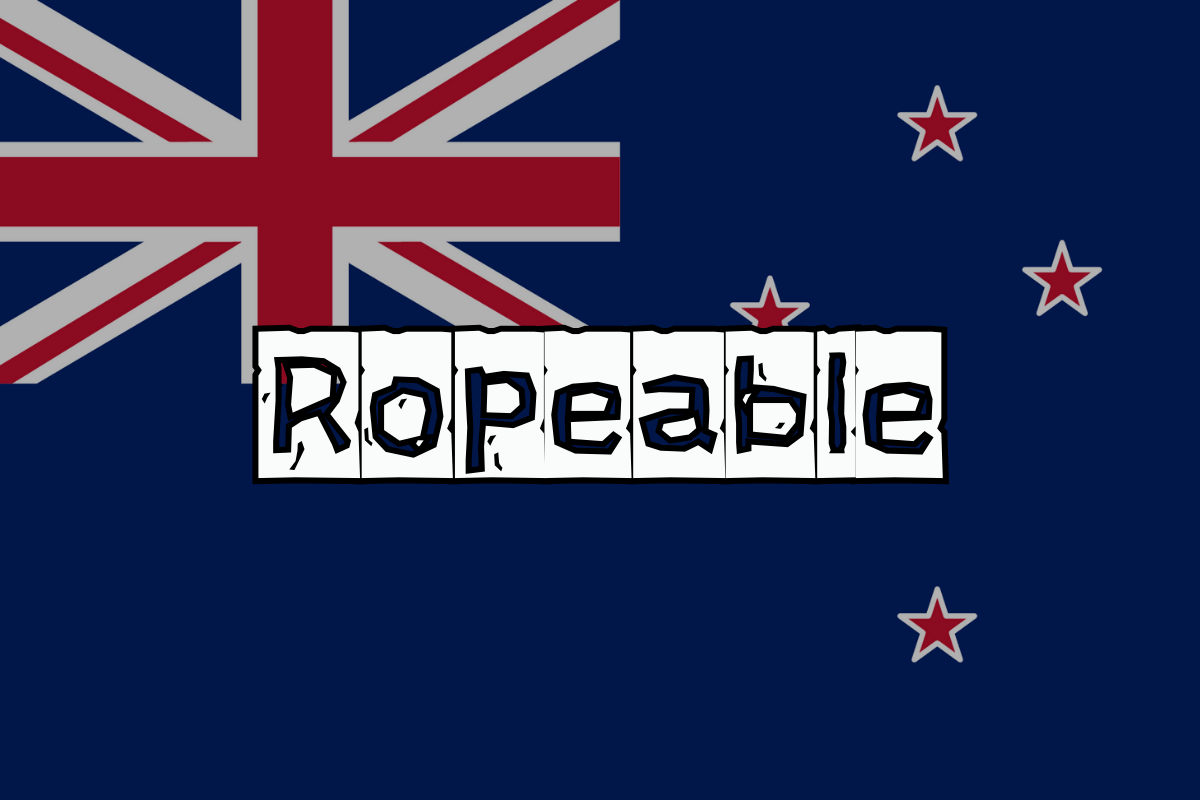
“Ropeable” is a colorful expression used to convey that someone is absolutely furious, on the verge of losing their temper.
The term suggests that the person is so angry, they could be “tied up” in frustration and might snap at any moment.
It’s a term with a bit of theatricality, often used to describe an intense outburst of anger.
This word is most often used when someone is seriously upset, but not necessarily in a calm or controlled way.
It paints a picture of someone ready to blow their top over a situation that’s pushed them too far.
Examples in sentences:
- “He’s ropeable after hearing about the pay cut.”
- “She was ropeable when she found out her car got towed.”
- “I’ve never seen him so ropeable; he was shaking with anger.”
- “You’d better watch out, he’s ropeable after what happened.”
- “I was ropeable when I missed my flight this morning.”
Salty
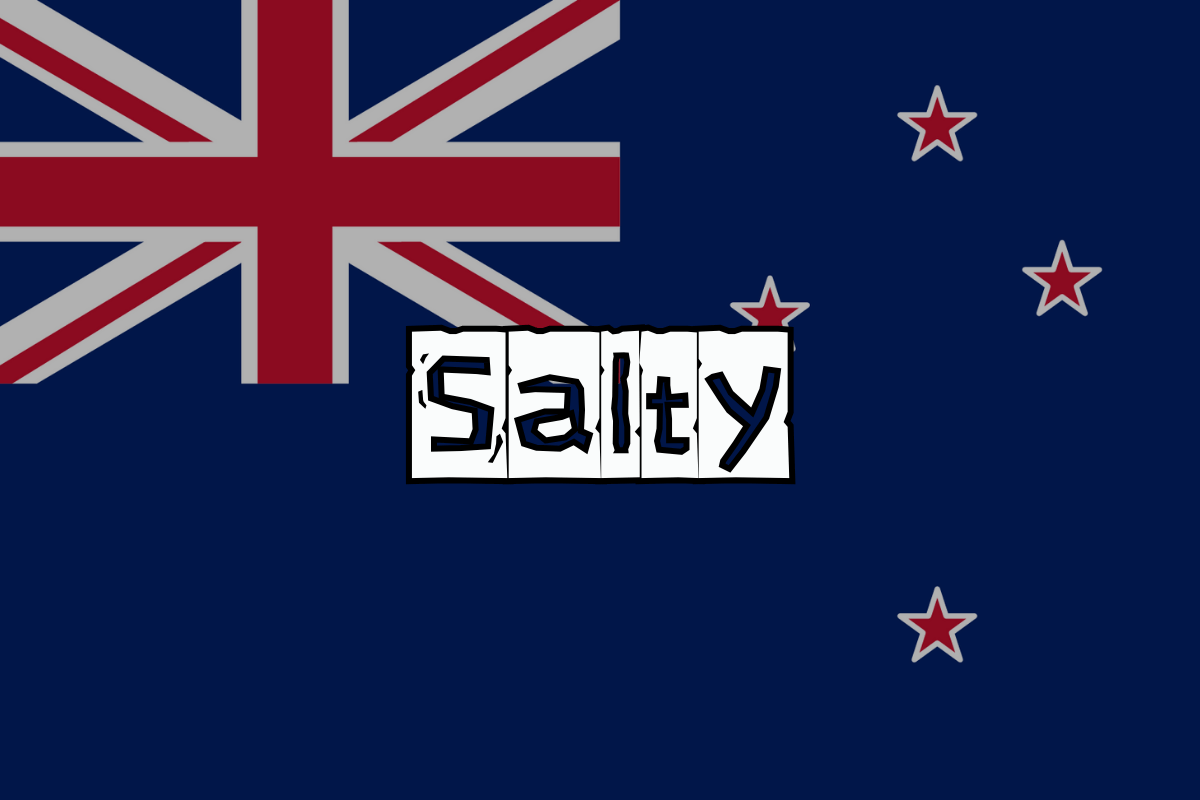
“Salty” is used to describe someone who is angry or upset, especially when they seem to be holding onto bitterness.
It often implies that the person’s anger is more about being disgruntled over a particular issue, rather than just being irritable in general.
The term also suggests a level of snarkiness, where the individual’s frustration can be a bit more intense or “spicy” than usual.
In New Zealand, calling someone “salty” is a way of saying they’re upset, usually because they feel wronged or annoyed by something.
The expression is informal, making it more common in casual conversations with friends or acquaintances.
Examples in sentences:
- “Don’t be so salty about losing the game.”
- “She’s still salty about the argument we had last night.”
- “He’s really salty after missing out on the promotion.”
- “You’re getting salty over something so small!”
- “I can tell you’re salty, but we’ll sort it out later.”
Seething
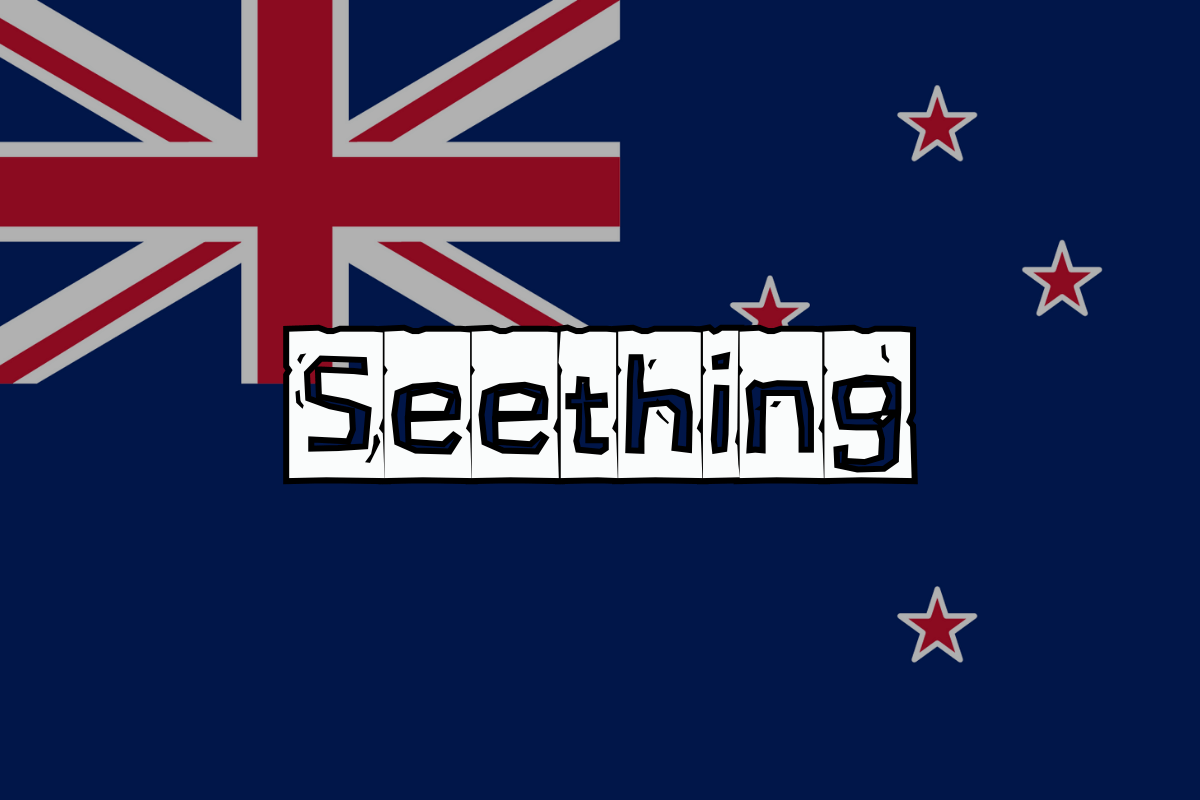
“Seething” refers to a deep, intense anger that’s often difficult to hide.
It describes the kind of anger where someone is almost boiling with frustration or fury, but they are trying to keep it under control.
The word evokes an image of someone simmering with rage, as though they are just on the edge of exploding.
In New Zealand, when someone is “seething,” they’re not just annoyed; they’re on the verge of losing their cool.
This term is typically used in more serious situations where the anger is much stronger than just being “pissed off” or “grumpy.”
Examples in sentences:
- “I could see he was seething after the meeting.”
- “She was absolutely seething when she found out the news.”
- “I’m still seething about that comment he made.”
- “You don’t want to be around when she’s seething like that.”
- “He walked away seething, unable to say another word.”
Spewing
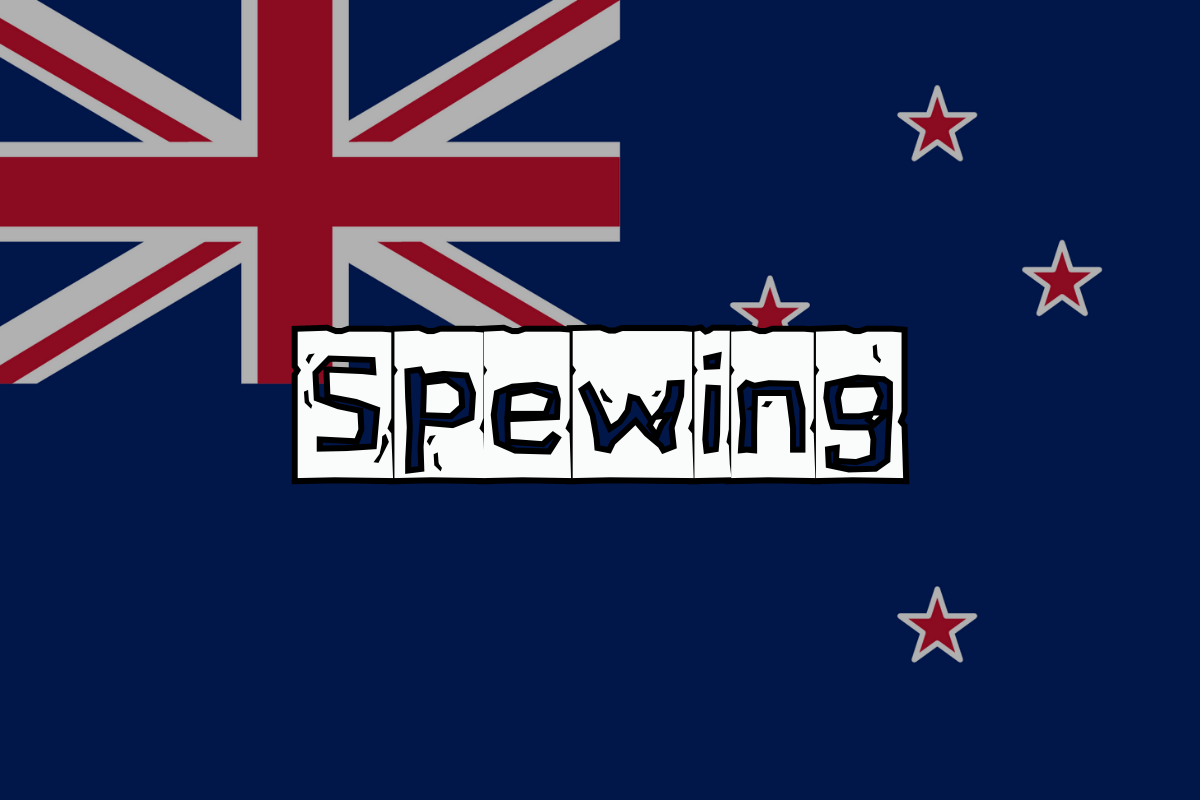
“Spewing” is a common New Zealand term that refers to someone who is very angry or upset, often to the point of vocal frustration.
It’s often used when someone is exasperated by a situation or a person, and they feel the need to express their anger openly.
This term carries a bit of a humorous undertone, as it’s less serious than words like “seething,” but still conveys a strong level of frustration.
It’s a versatile expression, used by Kiwis in both casual and more intense situations, and it’s particularly common when someone feels they’ve been wronged or inconvenienced in some way.
Examples in sentences:
- “I’m spewing! I can’t believe they cancelled the game!”
- “She was spewing when she found out about the delay.”
- “He’s absolutely spewing after losing the bet.”
- “I can’t believe I missed the train! I’m spewing!”
- “I was spewing after my favourite show got cancelled.”
Ticked Off
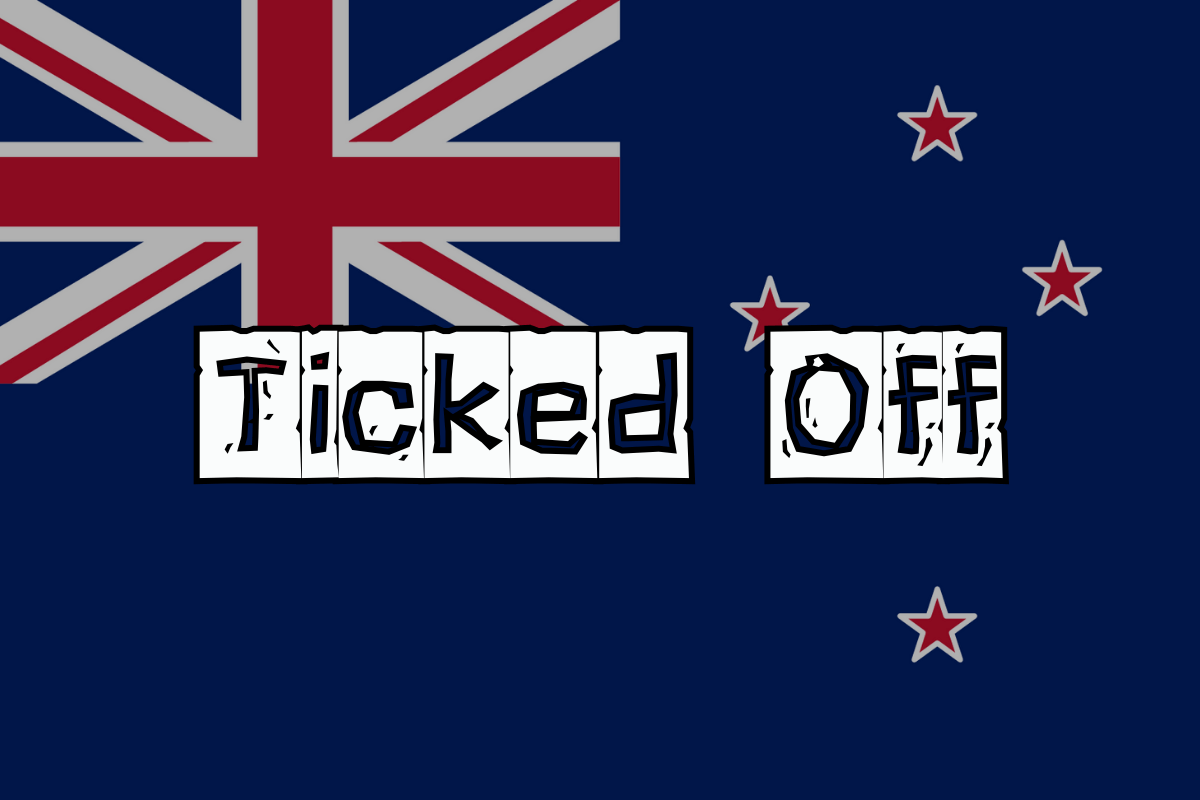
“Ticked off” is a casual New Zealand expression used to describe someone who is angry or annoyed, but usually not to an extreme degree.
It’s often used in situations where the frustration is noticeable but not necessarily explosive.
It’s more commonly used in everyday situations when someone is irritated by minor inconveniences or other people’s actions.
This term is versatile, and though it expresses dissatisfaction, it’s typically not as intense as other expressions like “dark” or “seething.”
It’s a great way to describe being upset without sounding too over-the-top.
Examples in sentences:
- “I’m really ticked off that they forgot my birthday!”
- “She was ticked off when she found out about the mix-up.”
- “He’s ticked off that the meeting was cancelled last minute.”
- “I’m ticked off at the traffic today—it’s terrible!”
- “Don’t get ticked off, it’s not that big of a deal.”

